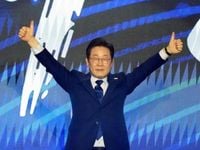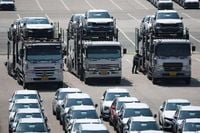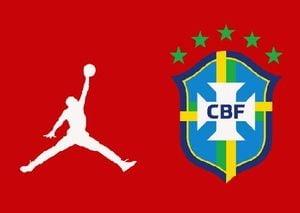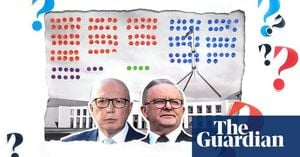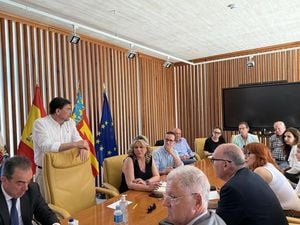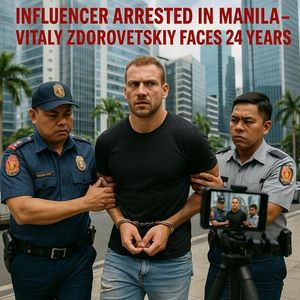SEOUL, April 29, 2025 -- The South Korean political landscape is heating up as the People Power Party (PPP) narrows its presidential contenders down to two key figures, former Labor Minister Kim Moon-soo and former PPP leader Han Dong-hoon, with a decisive election on June 3 looming large. This election comes on the heels of the ousting of President Yoon Suk Yeol, who was removed following a controversial attempt at martial law last December.
On Tuesday, the PPP confirmed that Kim and Han advanced to the final round of their primary election, with a runoff set to determine which candidate will represent the party in the upcoming presidential race. Former Daegu Mayor Hong Joon-pyo and PPP lawmaker Ahn Cheol-soo were eliminated in the earlier rounds. The party is expected to finalize its candidate later this week, with a convention scheduled for Saturday, May 3.
As the two contenders prepare for a series of debates starting Wednesday, April 30, they face the formidable challenge of appealing to an electorate that has shown strong support for the Democratic Party's candidate, Lee Jae-myung. Polls indicate that Lee has a significant lead over potential conservative opponents, with a recent Gallup survey showing him at 38% support, while all other candidates combined garnered only 23%.
Lee, who was named the Democratic Party's candidate on Sunday, April 27, has had a tumultuous political journey marked by resilience. He overcame a knife attack in January 2024, where he was stabbed by a man who sought to prevent him from becoming president. The assailant is currently serving a 15-year sentence for attempted murder. Lee’s rise to prominence has been fueled by his focus on economic equality and a desire to mend ties with North Korea, positioning himself as a populist leader in a time of political upheaval.
As Lee prepares for the election, he faces numerous legal challenges, including a recent conviction for violating election laws, which was overturned by an appeals court but is still pending before the Supreme Court. If elected, he would be shielded from most criminal charges due to presidential immunity, a factor that could significantly impact his ability to govern.
Meanwhile, the acting president, Han Duck-soo, is reportedly considering entering the race as an independent candidate, which could further complicate the political dynamics. His potential candidacy is seen as a strategy to consolidate conservative support against Lee, who is perceived as a strong contender for the presidency.
In the midst of this political turmoil, South Korea is also navigating complex trade negotiations with the United States. A senior official announced on Monday, April 28, that Seoul would not finalize a trade deal with Washington before the presidential election and warned of difficulties in reaching an agreement even by early July. The U.S. has been pushing for a comprehensive trade package aimed at removing tariffs, but the ongoing political situation in South Korea complicates these discussions.
Park Sung-taek, Vice Minister of Trade, Industry and Energy, stated, "It is theoretically impossible for the two countries to decide on a comprehensive trade package by late May or early June," highlighting the challenges posed by the political climate. South Korea is currently seeking exemptions from tariffs and is looking to establish working groups with the U.S. to address various economic issues, including energy cooperation and trade imbalances.
As the election date approaches, the stakes are high for both the PPP and the Democratic Party. The outcome will not only determine the next leader of South Korea but will also shape the country's response to pressing issues such as economic inequality, foreign policy, and domestic governance. Analysts believe that the election will serve as a referendum on Yoon's controversial presidency and the public's desire for change.
The PPP's internal dynamics are also under scrutiny, as the party grapples with divisions between members who support Yoon's actions and those who advocate for reform. Choi Jin, director of the Seoul-based Institute of Presidential Leadership, noted, "This election is a venue where the people hand down their judgment on Yoon’s martial law imposition after the Constitutional Court issued a judicial judgment on it. It’s subsequently difficult for the People Power Party to win the election if they slide over the martial law issue and fail to apologize."
As candidates prepare for debates and voters weigh their options, the coming weeks will be critical in shaping South Korea's political future. With Lee Jae-myung positioned as a frontrunner and the PPP in a state of flux, the June 3 election promises to be one of the most consequential in recent history.
